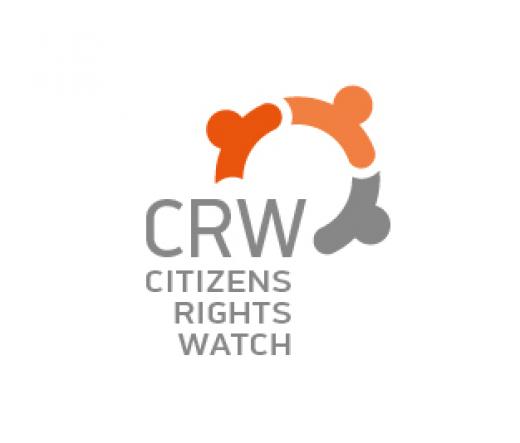With a long history of conflicts and ethnic violence, South Sudan which became independent in July 2011, after decades of civil wars still faces the disastrous consequences of its latest internal conflict.
The ongoing clashes between the government, the Sudan Peoples' Liberation Movement/Army (SPLM/SPLA) and opposition rebel party, the Sudan Peoples' Liberation Movement/Army in Opposition (SPLM/A-IO), that began in December 2013 has spread enormous incidents of violence within the country (Dawison, 2014).[1] The conflict which has turned into an ethnic fight between the Nuer and Dinka ethnic groups[2] has resulted in the spread of famine, diseases, unlawful killings, incidents of rape and sexual violence and other enormous violations against civilians.
Although the two sides have repeatedly discussed and agreed to end hostilities through the implementation of a ceasefire agreement and the formation of a unity government, the situation still remains the same and many civilians are losing their lives every day (Capelouto et al., 2014).
The latest news reveal that on August 25, 2014, the two belligerent parties accepted the signatory of a ceasefire agreement in which they were engaged to form a transitional government within 45 days following the directions of the regional group, Intergovernmental Authority on Development (IGAD) (BBC,2014 & Butty, 2014). However, a few days later, SPLA rebels claimed that they do not accept the signatory of the agreement and Riek Macher has not signed it (Butty, 2014).
Furthermore, the “Protocol on Agreed Principles on Transitional Arrangements towards Resolution of the Crisis in South Sudan” had the same fate. It was rejected by the SPLM in Opposition and characterized by Macher’s representative as a “bias[ed] and unjust document” that does not comply with their interests (Security Council Report, 2014).
In the meantime, thousands of unlawful killings, rape incidents, sexual violence and the spread of famine and malnutrition due to the lack of sanitation and clean water have been plaguing the country.
Based on the UN Security Council Press Statement on the Humanitarian Situation in South Sudan, “the catastrophic food insecurity situation in South Sudan […]is now the worst in the world […] [it] may soon reach the threshold of famine as a result of continued conflict, civilian targeting and displacement” (UNSC, 2014).
UN special representative on sexual violence, Zainab Hawa Bangura who recently visited South Sudan stated that the incidents of rape and sexual violence have taken tremendous dimensions within the country, noting that one of the victims was only 2 years old. She described the situation in South Sudan as one of the worst she has ever faced during her 30 year long career (Charbonneau, 2014).
“Survivors and health care workers told me heartbreaking stories of rape, gang rape, abduction, sexual slavery and forced marriages,” said Bangura “Those who try to fight back against their attackers are often raped with objects instead. Some victims have even been raped to death.” (As cited in Reuters, 2014)
The United Nations (UN) Refugee Agency has noted that “there are currently some 400,000 refugees from South Sudan in Ethiopia (158,164), Uganda (118,423) Sudan (82,000) and Kenya (41,115)” whilst estimations show that the number of refugees will increase to 715.000 by the end of the year (UNHCR, 2014). According to the United Nations Children’s’ Fund (UNICEF) approximately 9.000 children have participated in the armed conflicts as children soldiers (Tidey, 2014).
Citizens’ Rights Watch expresses its enormous concerns about the disastrous impact the South Soudan civil war has on the civilians’ lives and rights. We call the government of South Sudan under the presidency of Kiir and the rebel party of Riek Machar to end the hostilities and stop the deprivation of South Sudanese civilians’ rights to life, food, shelter, water, sanitation, medical care and others. We ask both sides to honor the ceasefire agreement and respect human beings’ lives and rights under the principles and values of human rights and humanitarian laws, by giving an end to this long-lasting conflict.
References
“South Sudan crisis: Riek Machar rebels reject deal” (2014) BBC News. Available at: http://www.bbc.com/news/world-africa-28966971
Butty (2014) “South Sudan: Rebels Explain Refusal to Sign Ceasefire Agreement” Voice of America. Available at: http://www.voanews.com/content/south-sudan-rebel-official-explains-why-they-did-not-sign-recent-agreement/2430654.html
Capelouto et al. (2014) “South Sudan, rebels reach cease-fire after weeks of fighting” CNN. Available at: http://edition.cnn.com/2014/01/23/world/africa/south-sudan-ceasefire/
Charbonneau, L (2014) “South Sudan sexual violence 'rampant,' two-year-old raped: U.N.” Reuters. Available at: http://www.reuters.com/article/2014/10/20/us-southsudan-un-idUSKCN0I92C320141020
Dawison (2014) “South Sudan peace talks begin as spectre of famine lurks” The Guardian. Available at: http://www.theguardian.com/global-development/poverty-matters/2014/aug/04/south-sudan-peace-talks-famine-conflict
Security Council Press Statement on Humanitarian Situation in South Sudan (25 July 2014) SC/11493-AFR/2944-IHA/1339
Security Council Report, South Sudan: October 2014 Monthly Forecast (22 Sept. 2014) Available at: http://www.securitycouncilreport.org/monthly-forecast/2014-10/south_sudan_11.php?print=true
Tidey, C. (2014) “With conflict raging in South Sudan, recruitment of children into armed groups is on the rise” UNICEF. Available at: http://www.unicef.org/infobycountry/southsudan_73403.html
United Nations High Commissioner for Refugees (UNHCR),“UNHCR seeks massive boost in funding for South Sudan refugees” Geneva, 2014. Available at: http://www.unhcr.org/53bfdc1a6.html
United Nations Office for the Coordination of The Humanitarian Affairs (OCHA) South Sudan Available at: http://www.unocha.org/south-sudan
[1] The conflict between the two sides started after South Sudan’s president’s Salva Kiir Mayardit accusations against Riek Machar (ex-vice-president) for trying to plot a coup against him.
[2] SPLA loyalists who are mainly Dinka, support the government of Kiir (who is also a Dinka) and SPLA Rebels who are mainly Nuer, support the SPLM/A-IO and Riek Machar (who is also a Nuer)


 Athanasia Zagorianou
Athanasia Zagorianou
Post a comment